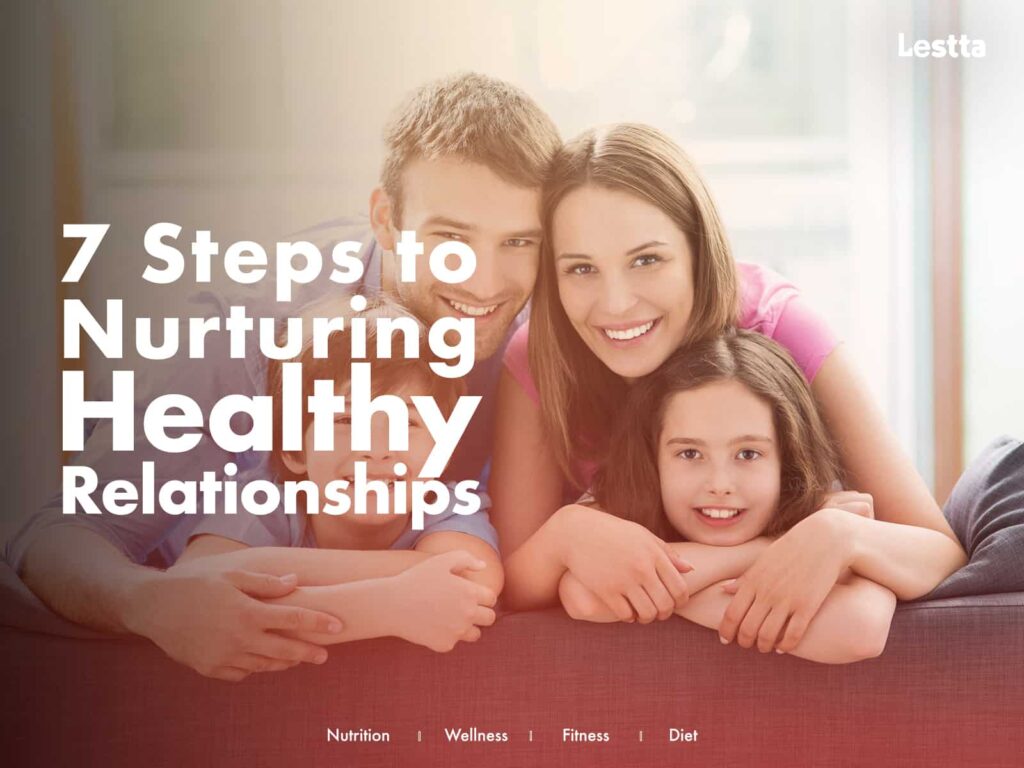
In the journey of life, our relationships with others play a significant role in shaping our happiness and well-being. Whether it’s with family, friends, or romantic partners, nurturing healthy relationships is essential for fostering a sense of connection and support. In this article, we will explore seven key steps to nurturing healthy relationships.
1. Communication
Effective communication is the cornerstone of any healthy relationship. Listening actively and expressing oneself honestly and respectfully build trust and mutual understanding. Take the time to engage in meaningful conversations, ask questions, and show genuine interest in what the other person has to say.
Open and compassionate communication creates an atmosphere of emotional safety and fosters deeper connections.
2. Practice Empathy and Understanding
Empathy is the ability to put ourselves in someone else’s shoes and understand their feelings and perspectives. Cultivating empathy enables us to be more sensitive and responsive to the emotions of others. Seek to understand their experiences without judgment, and validate their feelings.
Empathetic gestures demonstrate care and support, enriching the emotional bond within the relationship.
3. Respect Boundaries and Autonomy
Respecting each other’s boundaries and individual autonomy is crucial in nurturing healthy relationships. Recognize that everyone has their unique needs, interests, and personal space. Avoid pressuring or manipulating others into doing something they are uncomfortable with.
Instead, foster an environment where each person can express their boundaries openly, creating a sense of mutual respect and trust.
4. Show Appreciation and Gratitude
Expressing gratitude and appreciation is a powerful way to strengthen relationships. Take the time to acknowledge the efforts and kindness of the people around you. Simple acts of gratitude, like saying “thank you” or giving compliments, can go a long way in making others feel valued and cherished.
Showing appreciation also reinforces positive behaviors and encourages more meaningful interactions.
5. Resolve Conflicts with Understanding
Disagreements are a natural part of any relationship, but how we handle them can make all the difference. Instead of engaging in heated arguments, approach conflicts with understanding and a willingness to find common ground. Use “I” statements to express your feelings without blaming the other person.
Engage in active listening, seeking to comprehend their perspective. Healthy conflict resolution fosters growth and strengthens the bond between individuals.
6. Support Each Other’s Growth
In nurturing healthy relationships, it’s essential to support each other’s personal growth and aspirations. Encourage and celebrate each other’s achievements, no matter how big or small. Be there during challenging times, offering a helping hand or a listening ear.
Encouraging personal development and growth within the relationship ensures that both individuals can thrive together.
7. Make Quality Time a Priority
Amidst the hustle and bustle of daily life, carving out quality time for each other is paramount. Disconnect from distractions and dedicate time solely to focus on the relationship. Engage in shared activities, such as hobbies or outings, that bring joy and strengthen the bond.
Quality time allows for deeper emotional connection and fosters intimacy, creating lasting memories together.
Conclusion
Nurturing healthy relationships is an ongoing process that requires effort, understanding, and dedication from both parties involved. By prioritizing effective communication, empathy, respect, gratitude, conflict resolution, support, and quality time, we can foster meaningful connections that enrich our lives and the lives of those we cherish.









